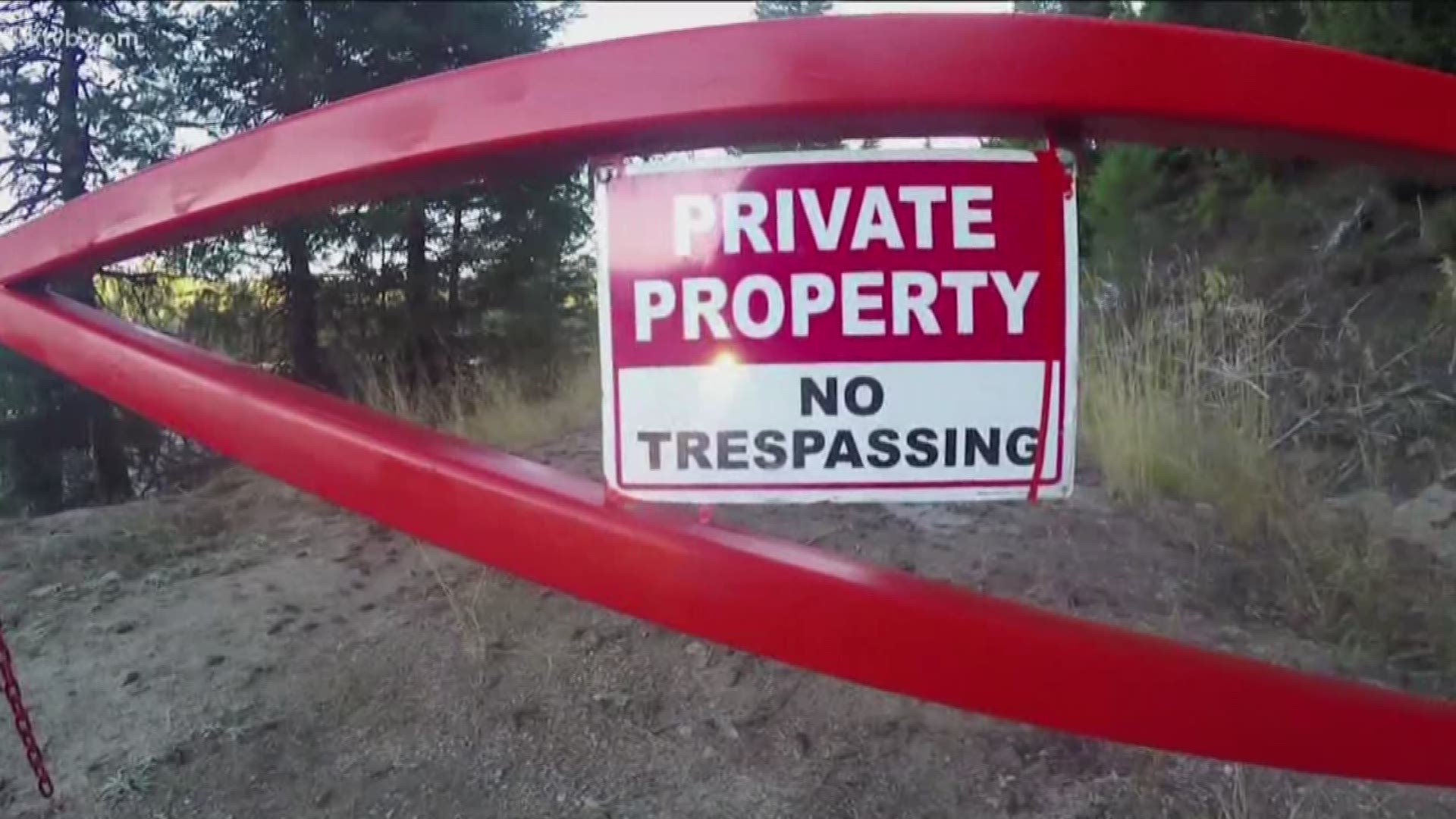BOISE, Idaho — The Idaho Wildlife Federation is leading the effort to introduce a bill that would allow people to take civil action against anyone who puts up gates or signs on public property, blocking access or claiming it's private.
“I know there are many, many people from around the state, whether they mountain bike, ATV, hunt, fish, pick berries, hunt morels, they are interested in coming and saying it’s time we create this law. We have no power to hold people accountable,” Idaho Wildlife Federation Executive Director Brian Brooks said.
It's an amendment to an existing statute, and they are not creating a new law. Blocking access on public roads, land or streams is already illegal in Idaho, but currently can only be taken up criminally.
“By providing a civil remedy - found in other places in Idaho code - we can allow for swifter justice, we can save counties money and we can hold those accountable who are willing to take public land from the public,” Brooks said.
Under this proposed change, people could sue someone who violates the section in Idaho code. Some concerns raised include the potential for frivolous lawsuits and giving the public access to private property.
“We're hoping this doesn't actually result in litigation but the threat that people now have power to enforce this law we hope serves as an incentive to keep people honest,” Brooks said.
Senate Bill 1089 was given a print hearing earlier this week. If you feel strongly about the public lands bill, Brooks says you can show up and testify in front of the Senate Resources and Environment Committee on February 25.
The public lands access bill isn't the only legislation making its way through the Statehouse this week.
REVISED CAREER LADDER FOR TEACHERS
On Wednesday, the Idaho House Education Committee voted to introduce Governor Little's bill to revise the career ladder, and raise the minimum teacher salary to $40,000.
Increasing teacher salaries on the career ladder’s “residency rung” and upping starting teacher pay are education missions Little pushed in his inaugural State of the State address.
Proposed increases would be implemented over a span of two years, as opposed to going into effect next year as was originally proposed.
WORKERS' COMP FOR FIRST RESPONDERS
A bill that would change workers compensation for first responders passed the full Senate floor Tuesday.
If signed into law, first responders suffering from Post Traumatic Stress Injury (PTSI), also known as Post Traumatic Stress Disorder (PTSD) would be financially covered under worker’s compensation. PTSI would be recognized as an occupational injury, rather than needing to be accompanied by a physical injury.
The first responders PTSI bill is heading to the Idaho House Commerce and Human Resources Committee for review and a vote.

